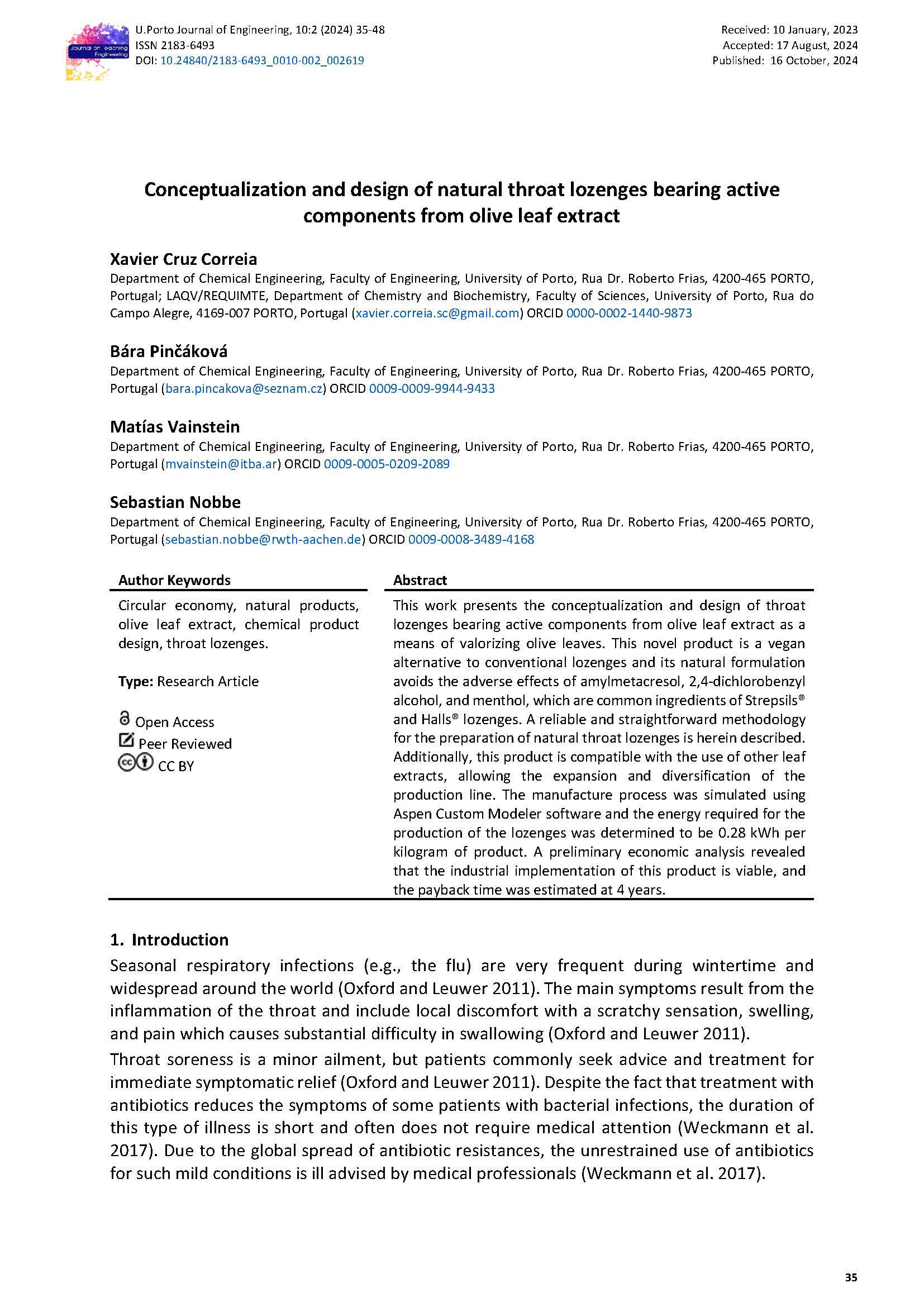Conceptualization and design of natural throat lozenges bearing active components from olive leaf extract
Main Article Content
Abstract
This work presents the conceptualization and design of throat lozenges bearing active components from olive leaf extract as a means of valorizing olive leaves. This novel product is a vegan alternative to conventional lozenges and its natural formulation avoids the adverse effects of amylmetacresol, 2,4-dichlorobenzyl alcohol, and menthol, which are common ingredients of Strepsils® and Halls® lozenges. A reliable and straightforward methodology for the preparation of natural throat lozenges is herein described. Additionally, this product is compatible with the use of other leaf extracts, allowing the expansion and diversification of the production line. The manufacture process was simulated using Aspen Custom Modeler software and the energy required for the production of the lozenges was determined to be 0.28 kWh per kilogram of product. A preliminary economic analysis revealed that the industrial implementation of this product is viable, and the payback time was estimated at 4 years.
Downloads
Article Details

This work is licensed under a Creative Commons Attribution 4.0 International License.
Authors who publish with this journal agree to the following terms:
- Authors retain copyright and grant the journal right of first publication with the work simultaneously licensed under a Creative Commons Attribution License that allows others to share the work with an acknowledgement of the work's authorship and initial publication in this journal.
- Authors grant the journal the rights to provide the article in all forms and media so the article can be used on the latest technology even after publication and ensure its long-term preservation.
- Authors are able to enter into separate, additional contractual arrangements for the non-exclusive distribution of the journal's published version of the work (e.g., post it to an institutional repository or publish it in a book), with an acknowledgement of its initial publication in this journal.
- Authors are permitted and encouraged to post their work online (e.g., in institutional repositories or on their website) prior to and during the submission process, as it can lead to productive exchanges, as well as earlier and greater citation of published work (See The Effect of Open Access).

